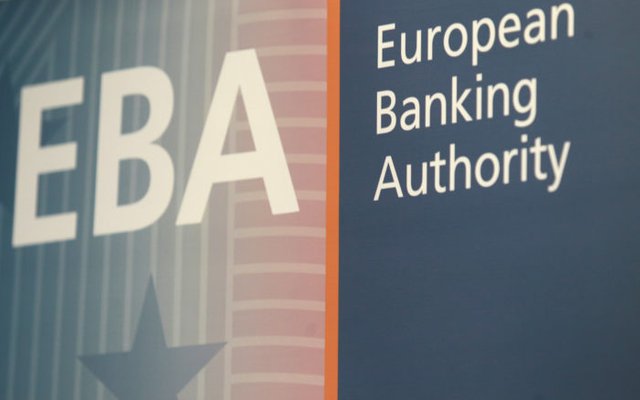
The Chairman of the European Banking Authority Andrea Enria expressed his opinion against excessive regulation of cryptocurrency, warning it might constrain financial innovation, News Bitcoin reported.
Outlining EBA’s position in regards to the supervision of the Fintech industry, Andrea Enria stated that regulators need to maintain a “measured approach”.
Speaking at the Copenhagen Business School on Friday, Enria stated that he was not convinced cryptocurrencies should fall under the regulations that apply to traditional financial systems. Several central banks have argued that cryptocurrencies lack the institutional backup and cannot fulfill the functions of money – unit of account, means of exchange and reserve of value, Enria said.
Enria further admitted that crypto valuations seem to confirm this view.
“Still, I am yet to be convinced that this is sufficiently strong argument to attract cryptocurrencies under the full scope of regulation”, Enria said.
The official pointed out that cryptocurrencies can be used for international payments, thanks to an innovative mechanism – the distributed ledger technology.
Enria remarked that the policy debate on technological and financial innovation often focuses on two opposite approaches: “regulate and restrict” – banning innovative business not fitting into the rulebook; and “let things happen.”
In Enria’s opinion, both of the regulatory strategies have shown limitations, with the first being ineffective in open markets, and the second one increasing risks in the unregulated sector. EBA’s chief official believes that a realistic approach involves the implementation of specific regulations in accordance with the different risks for the firms, their customers, the financial sector, and the whole economy.
Enria further expresses that certain functions provided in the cryptocurrency space, such as providing liquidity in crisis situations and lending (BANCOR), should be strictly reserved for the banks and subject to “enhanced regulation and supervision”.
At the same time, he argues that services, like payments and issuance of electronic money, may be provided by other go-betweens. These services are not intrinsically related to the essential functions of banks, the head of Europe’s banking authority argued.
Enria also admitted crypto sector is changing fast and it’s difficult to regulate and supervise. Authorities have to continuously review regulations, but they also need to maintain an informed and measured approach, he added.
Enria warned that small businesses startups using the new innovation cannot sustain the compliance burden placed on banks:
“An excessive extension of the regulatory perimeter, attracting most Fintech firms under the scope of bank-like supervision, just because they compete with banks in some market segment, is likely to be a sub-optimal solution”.
However, EBA’s Chairman is convinced that such move would create the risk of “constraining financial innovation” advocating for a “proportionate” and “less intense” approach in comparison to regulations applied to the banks, citing “lower potential for systemic risk” from the crypto sector.
Despite this Enria stated that regulators should never allow de facto banks to combine deposit-taking and lending outside strict regulatory requirements and effective supervision. Any financial firm doing that should be regulated and supervised as a bank, he expressed.
Although Enria feels that the first step for regulators should be to understand how new products and business practices fit in the existing regulatory framework. The conscious choice not to impose the full set of rules on a nascent technology can lead to a more mature and productive dialogue between innovative firms and regulators, he added.
According to EBA’s executive, the debate on how to regulate innovation is often “laden with prejudices and undue simplifications”. In his view, a “proportionate, technologically neutral approach” to regulation should be pursued while avoiding “inherent bias towards the status quo”.
“Fintech firms must be able to scale up and offer services across the Single Market, providing benefits to all EU citizens”, Enria said. He also noted that competition in the Fintech space is developing globally and warned European businesses would have to cope with significant disadvantages if local authorities impose different sets of rules. Current variations may result in “regulatory arbitrage” or consumer protection risks.
Meanwhile in the U.S. Congress itself eyes federal cryptocurrency oversight with a meeting expected later this month by global financial regulators at the G20 conference to discuss cryptocurrency regulation worldwide, News Bitcoin reported.
The G20 includes central bankers and leaders from 19 countries and the European Union, spanning the entire globe: Argentina, Australia, Brazil, Canada, China, France, Germany, India, Indonesia, Italy, Japan, Mexico, Russian Federation, Saudi Arabia, South Africa, South Korea, Turkey, United Kingdom, and the United States.
Bitcoin is currently trading at [FIAT: $9,232.57] down -2.40% at the time of this report according to Coin Market Cap.
Want an edge in the crypto markets? Subscribe to our free newsletter. Follow Coinivore on Facebook, at Twitter and Steemit.
Hi! I am a robot. I just upvoted you! I found similar content that readers might be interested in:
https://news.bitcoin.com/excessive-crypto-regulation-not-optimal-eu-banking-authority-says/
Downvoting a post can decrease pending rewards and make it less visible. Common reasons:
Submit